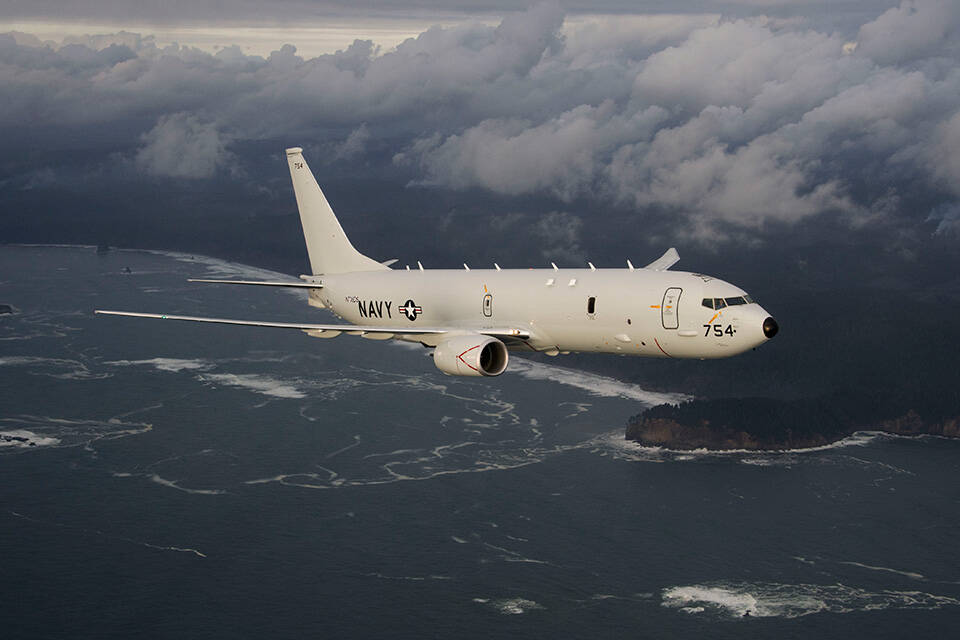Perfect Timing... US Navy Throws Boeing $103M To Update Its Sub Recon Jets

Boeing could use any win it can get lately, and it's found an admittedly small one in a $102.7 million deal to modernize some of the US Navy's submarine-hunting P-8A Poseidon aircraft.
The order, approved yesterday, has Boeing supplying ten upgrade kits for the maritime patrol and reconnaissance aircraft. Details regarding the nature of the updates are sparse, with the Department of Defense only saying the work is being done "in support of anti-submarine warfare capabilities."
Boeing didn't respond to questions from The Register.
The P-8A entered service in 2013 and is used in anti-submarine and anti-ship operations by navies in the US, UK, Australia, India, and South Korea. The aircraft can be armed with torpedoes and cruise missiles, and carry out reconnaissance missions. In the US, the plane replaced the P-3C Orion, which was introduced in the 1960s.
For watchers of Boeing's recent headaches, however, it may be most notable that the P-8A is actually a military variant of the 737 Next Generation (737NG) - predecessor to the troubled 737 Max line of aircraft with which the NG shares many similarities.
Well, that can't be good.
Hopefully Boeing is better on the defense side
Naval pilots aren't exactly known for being easy to frighten, though they have plenty of reason to be nervous about flying the P-8A given Boeing's recent track record.
A pair of 737 Max jets crashed in 2018 and 2019, killing 346 people. Earlier this month, a 737 Max 9 aircraft had an emergency exit door plug blown out during flight, causing America's Federal Aviation Administration to ground the planes across the nation for inspections.
Those inspections turned up loose bolts on dozens of aircraft in multiple locations around their door plugs. The bolts and prior issues with the safety of Boeing aircraft have led the FAA to reconsider long-standing rules that allow aircraft manufacturers to perform their own safety inspections.
"It is time to re-examine the delegation of authority and assess any associated safety risks," FAA Administrator Mike Whitaker said last week. "The FAA is exploring the use of an independent third party to oversee Boeing's inspections and its quality system."
The 737NG, while no longer in production, wasn't without its problems either, such as screens going black when pilots landed facing west and certain airports, and "unexpected cracks" on critical joints where the NG's wings join to the fuselage.
- What was Boeing through their heads? Emails show staff wouldn't put their families on a 737 Max over safety fears
- Boeing 787s must be turned off and on every 51 days to prevent 'misleading data' being shown to pilots
- Veteran wingman wants $1.75M from Boeing over emotional turbulence
- Impatient LockBit says it's leaked 50GB of stolen Boeing files after ransom fails to land
Then there's the debacle that is Boeing's Starliner spacecraft and the billion dollars in losses it's caused for the aerospace firm. The calamity crew capsule has been plagued by parachutes failing to open and tape catching on fire, thruster failures, overheating batteries, and other gremlins.
Things just ain't right over there, it seems.
And if things couldn't get worse from a PR standpoint, US Secretary of State Antony Blinken was temporarily stranded in Davos, Switzerland, after attending the World Economic Forum yesterday because - you guessed it - issues with his Boeing 737.
"There was a mechanical issue with [Secretary Blinken's] plane," State Department spokesperson Matthew Miller told reporters yesterday. Per the BBC, the plane was grounded because of a "critical failure" that caused an oxygen leak.
That $102.7 million US Navy award may seem like a drop in the bucket for a corporation Boeing's size, but all those aforementioned problems have taken their toll on the company. In its last quarterly report, issued in October, Boeing disclosed a net loss of $1.6 billion on "unfavorable defense performance and lower 737 deliveries." ®
From Chip War To Cloud War: The Next Frontier In Global Tech Competition
The global chip war, characterized by intense competition among nations and corporations for supremacy in semiconductor ... Read more
The High Stakes Of Tech Regulation: Security Risks And Market Dynamics
The influence of tech giants in the global economy continues to grow, raising crucial questions about how to balance sec... Read more
The Tyranny Of Instagram Interiors: Why It's Time To Break Free From Algorithm-Driven Aesthetics
Instagram has become a dominant force in shaping interior design trends, offering a seemingly endless stream of inspirat... Read more
The Data Crunch In AI: Strategies For Sustainability
Exploring solutions to the imminent exhaustion of internet data for AI training.As the artificial intelligence (AI) indu... Read more
Google Abandons Four-Year Effort To Remove Cookies From Chrome Browser
After four years of dedicated effort, Google has decided to abandon its plan to remove third-party cookies from its Chro... Read more
LinkedIn Embraces AI And Gamification To Drive User Engagement And Revenue
In an effort to tackle slowing revenue growth and enhance user engagement, LinkedIn is turning to artificial intelligenc... Read more

